Social ministry of the UGCC: can the Church be called a critical infrastructure?
July 27, 2024
Russia’s war against Ukraine continues to sow death, wipe out entire cities and inflict new wounds on the body of the Ukrainian people. Today, it is increasingly difficult to single out the direct victims of the war, as it affects everyone to some extent.
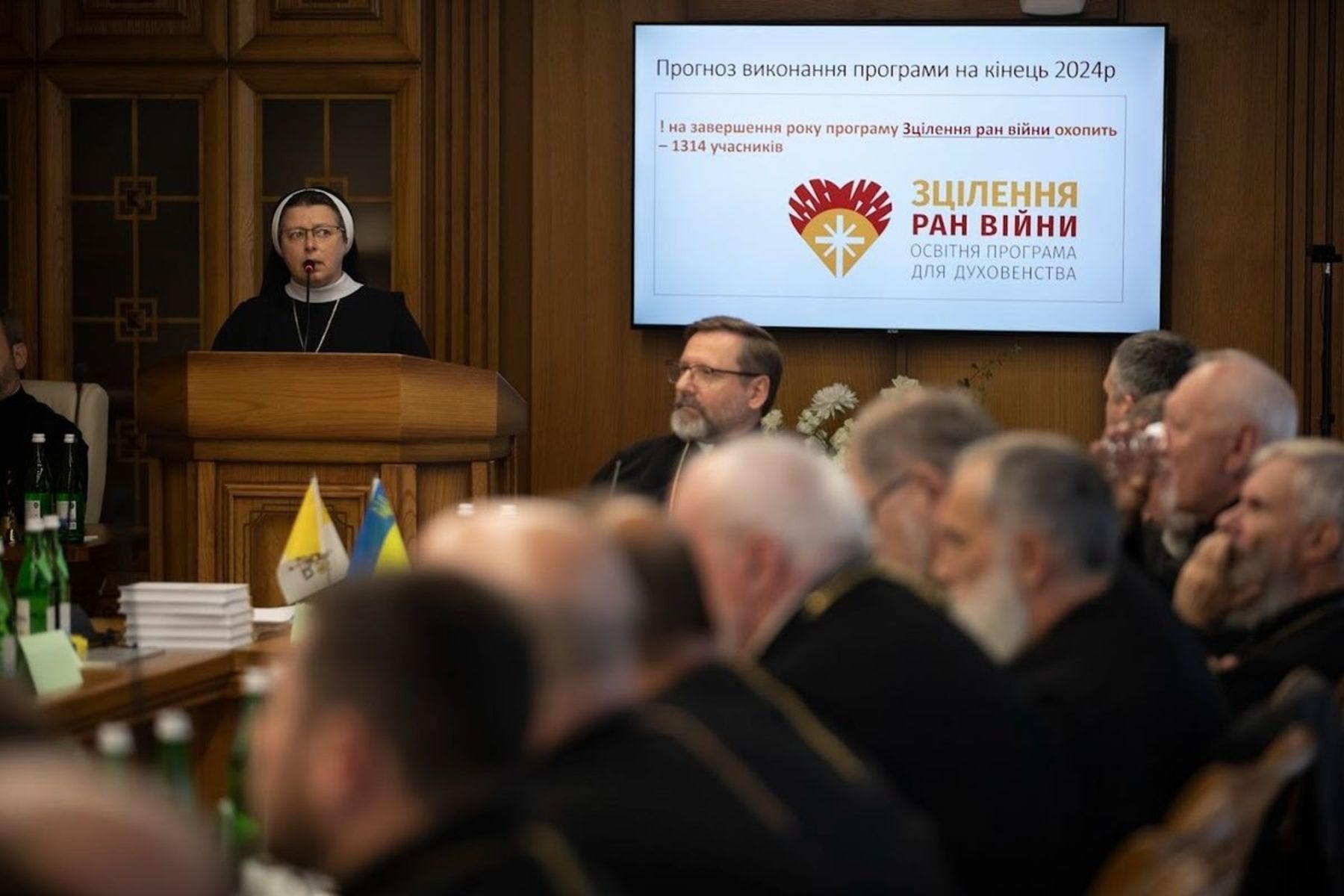
Accordingly, it requires strengthening the ministry to life and for the sake of life. And this is the direct mission of the Church in general and of every Christian in particular.
On June 25, 2024, Ukrinform posted a video interview with the Father and Head of the Ukrainian Greek Catholic Church, His Beatitude Sviatoslav, on its YouTube channel. Discussing the current issues that concern Ukrainian society today, the Head of the UGCC also drew attention to the mobilization process. In this context, he said: “Churches belong to the critical infrastructure that ensures the ability of the Ukrainian people to fight and survive in times of war. The Church is a source of stability, without the presence and proper mission of the Churches of Ukraine, the Ukrainian victory may be under great threat.”
How does the Ukrainian Greek Catholic Church carry out social ministry for victims of war? How does it structure the provision of assistance to those in need? What are the areas of activity of the UGCC Social Ministry Department, the Caritas Ukraine Charitable Foundation, the Commission UGCC for the Pastoral Health Care, and the Patriarchal Foundation “Mudra Sprava”? Finally, what is the church doing to heal the wounds of war, since it proclaims this area of activity as its prerogative?
On July 2–12, 2024, at the Synod of Bishops of the Ukrainian Greek Catholic Church, which took place at the Marian Spiritual Centre in Zarvanytsia, the largest church institutions involved in social service had the opportunity to present some practical results of their activities. Obviously, we are talking only about certain statistical data and possible accounting constants. The healing, motivational, and spiritual dimensions of ministry/diaconate, which is part of the nature of the Church, remain beyond the scope of these reports.

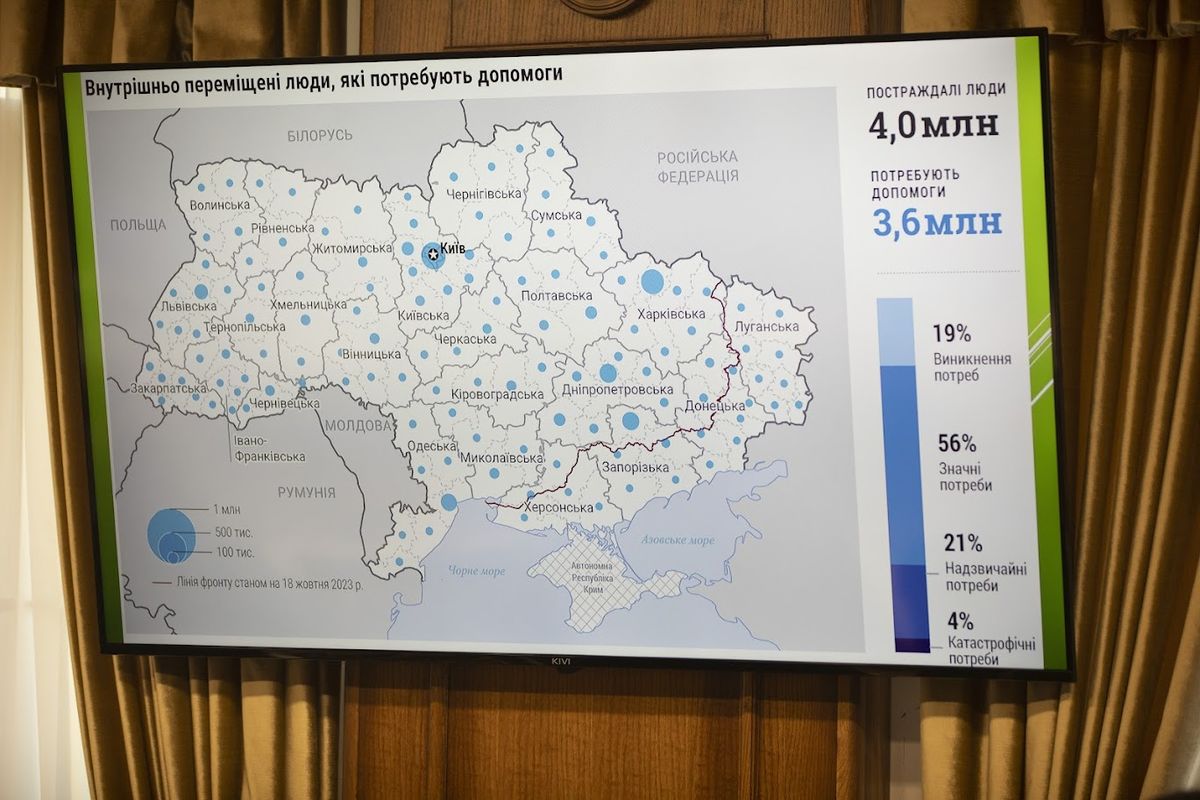
Today, the Department of Social Service of the UGCC identifies the following groups of people among the most affected by the Russian war against Ukraine:
- Children affected by the loss of safety and security, relocation, change of educational institutions and/or transition to online learning.
- Families of servicemen and servicewomen: those who died defending the country/missing in action, in captivity, or still in service.
- People of retirement age, people with disabilities and others who are unable to cover their basic needs.
- Internally displaced persons who have lost their homes, income and stability.
The most frequent needs include housing/shelter, food, water, sanitation, hygiene, medical supplies and healthcare, livelihood and work, psychological assistance and rehabilitation, and education.
The main benefactors are the Department of Social Ministry of the UGCC, the Caritas Ukraine Charitable Foundation, the Patriarchal Foundation “Mudra Sprava”, the Commission for the Pastoral Health Care of the UGCC, the Ukrainian Educational Platform, the Knights of Columbus Fraternal Organisation and others.
Department of Social Ministry of the UGCC
Following the words of Bishop Vasyl Tuchapets, Head of the UGCC Department of Social Ministry, the main task of the institution entrusted to him is “to strengthen the parish communities of the UGCC in implementing social service, providing social services and humanitarian assistance to the neediest people, including IDPs, through the development of organizational capacity and training for parish volunteers”.
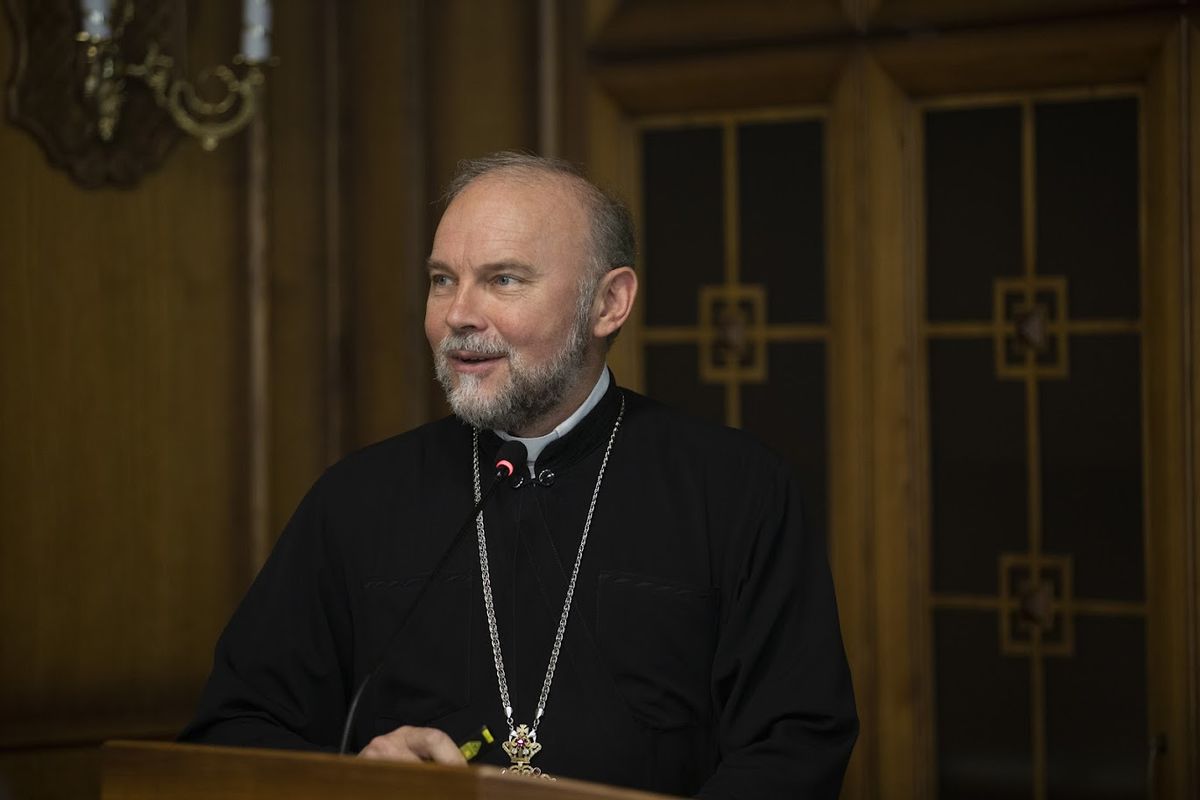
This task was formed back in 2017 when the Synod of Bishops of the UGCC approved the Strategy of Social Service of the UGCC.
It is carried out using three main methods:
- Activation of social service, visits and supervision of parishes.
- Training programs and assistance for activists from parishes (School of Volunteers, School of Social Service, consulting and mentoring support from the Patriarchal Curia of the UGCC, practical support for parish initiatives).
- Social service forums.
Summing up the results, Bishop Vasyl said that in 2023, a total of 120 parishes were involved, forming groups of active parishioners to address social issues in their communities and developing knowledge and skills during the School of Social Service programme. More than 1,200 volunteers also participated in the SOVA Social and Educational Volunteer Academy.
In the process of this training and development, parish communities had the opportunity to submit their project to a mini-grant competition and receive financial and mentoring support. A total of 104 projects were submitted. Of these, 30 projects were aimed at supporting vulnerable groups, 54 at developing youth spaces, and 20 at developing social entrepreneurship. We managed to support 79 parish projects financially.
In addition, in 2023–2024, 10 diocesan, one metropolitan in Kyiv, and an all-church Social Service Forum “Interaction for Sustainability” were held, which became platforms for discussing social ministry, the importance of local initiatives, sharing experiences, successful examples, and the difficulties faced by communities.
Caritas Ukraine Charitable Foundation
The Caritas Ukraine Charitable Foundation has been providing various social assistance in Ukraine for over 30 years. The outbreak of the Russian war against Ukraine in 2014 forced the Caritas team to transform its activities. The foundation focused its attention on two main areas: responding to the humanitarian crisis and developing communities and programs to increase resilience. At the same time, the charitable foundation does not disassociate itself from the social transformation of Ukraine, actively advocating for the reform of social policy and humanitarian legislation at the national level.
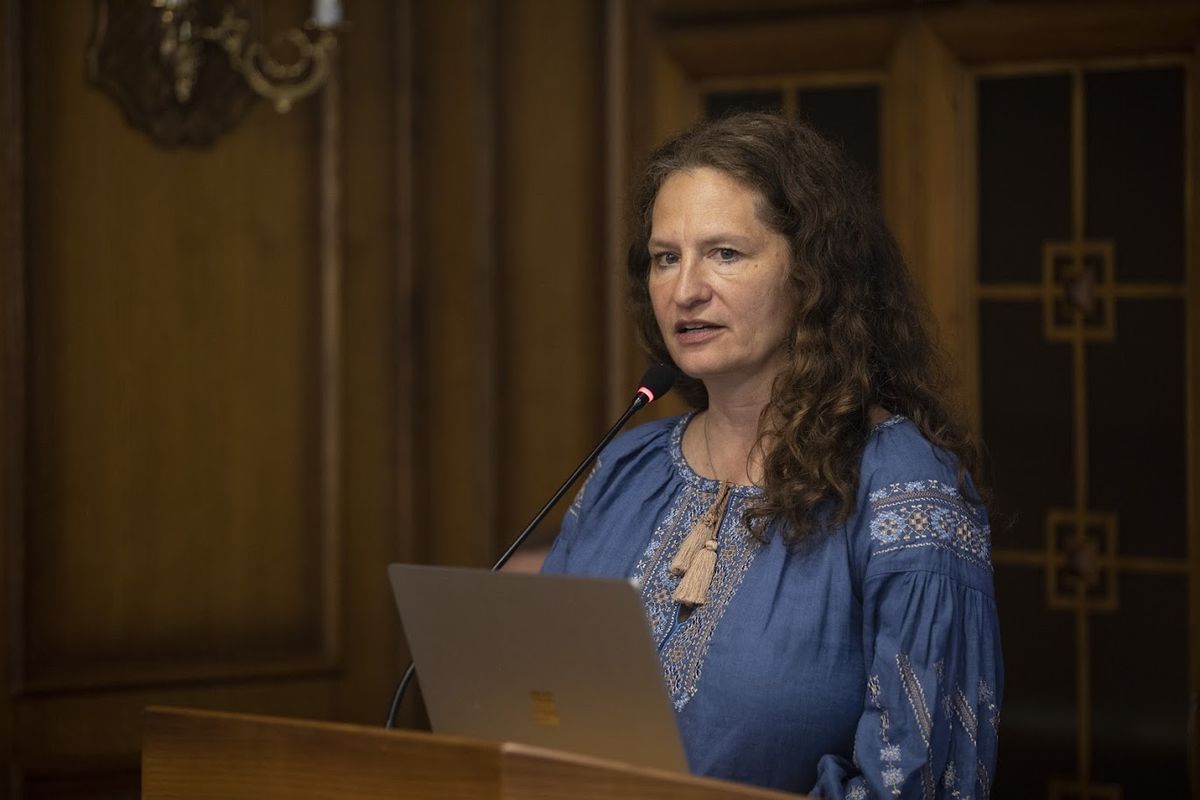
Today, Caritas Ukraine is one of the most recognizable charitable organizations. In fact, it is a network of 45 local branches. This network allows us to cooperate with more than 600 communities through local organizations, branches and mobile teams.
In 2024, the network has more than 1,100 active volunteers and 2,000 staff members. Among the volunteers and staff, you can meet victims of war. The diaconate of neighbourly care and service helps them to heal their own wounds of war. It should also be remembered that Caritas provides training and start-up grants to local NGOs to assess and respond to the needs in their village/community.
Since 24 February 2022, Caritas has provided over 5 million services to more than 3 million beneficiaries.
“Our goal is to help people in need and affected communities move from crisis to stabilisation and then to community-based development and resilience/social cohesion programmes. In this way, Caritas contributes to building long-term sustainable solutions,” says Tetiana Stawnychy, President of Caritas Ukraine.

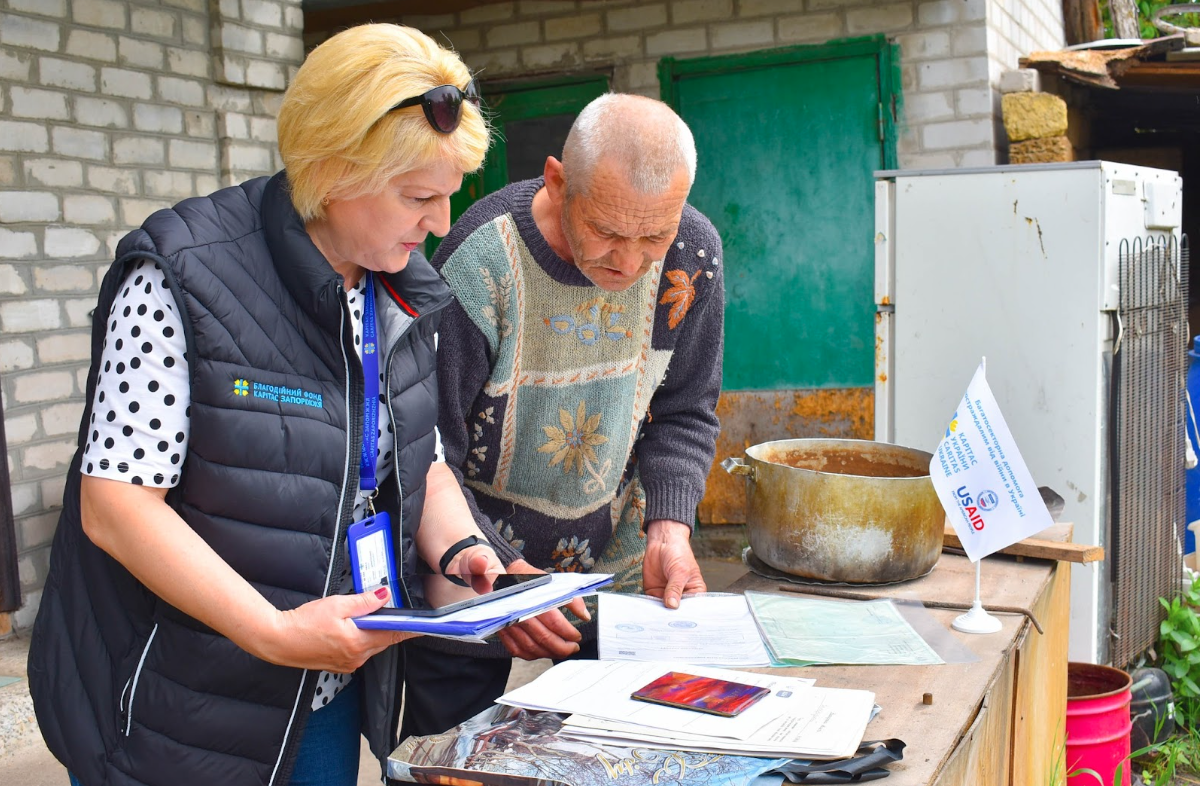
In pursuit of this goal, Caritas Ukraine is currently working in the following areas to serve the victims of the Russian war in Ukraine:
1. Food security, which includes the provision of food packages, voucher programmes and hot meals for those most in need.
2. Water, sanitation and hygiene. First and foremost, it is about ensuring immediate access to drinking water, which requires water delivery in case of immediate response and the development of local solutions to restore water supply to communities (wells, pumps, filtration systems, water towers) with an eye to the future. This area also includes the distribution of hygiene kits.
3. Shelter for internally displaced persons is provided by 37 temporary shelters. The organisation’s volunteers do not stop there, and therefore take care of the transition of people who have lost their homes to more permanent housing. This is done through programmes of financial assistance for rent or utility bills, repair of damaged houses and installation of modular houses.
4. Multipurpose cash assistance to meet the basic needs of families.
5. Livelihoods includes two “Cash for Work” programmes, which are implemented on the basis of the community and local businesses. It also includes training, mentoring and grant support for small businesses.
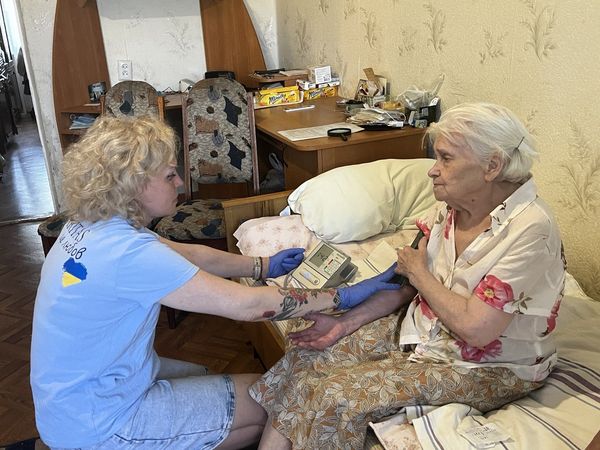

6. Protection involves the establishment of crisis centres and case management for the most vulnerable. Thus, it is about psychological support, which includes both work with victims and training for employees. This area is also about advocacy for both the fund itself and adequate social policy in general.
7. Inclusion programs for people with special needs, including children”s rehabilitation centres, day life skills centres for young people, and day care centres.
8. Children, youth and families / education. This area of Caritas” work involves serving to create a child-friendly environment, supporting children/youth and parents in stabilising after displacement or other traumatic events. In turn, in the educational sphere, it is about psychosocial and resilience work in schools (youth, parents, teachers), access to quality education for children and youth affected by the conflict, and psychological support for teachers.
9. Healthcare. Caritas tries to provide home care for the elderly, palliative care and trainings for social workers, medical professionals and volunteers on home care methodology and standards. The foundation has recently started setting up primary healthcare clinics. These are telemedicine/mobile teams that provide treatment in hard-to-reach regions.
10. Migration, refugees and reintegration. Caritas is actively engaged in raising awareness of the dangers of human trafficking and reintegration of victims of trafficking.
11. Social cohesion and community development programs. These include trainings on needs assessment, response planning and mini grants to start activities.
According to Tetiana Stawnychy, Caritas Ukraine continues to adapt its programs to the needs at the local level. “The year 2024 requires a comprehensive approach that includes ongoing stabilisation assistance to the most vulnerable across the country and a rapid humanitarian response to new waves of needs and displacement due to the escalation of the situation along the frontline, border areas and rocket attacks. As of today, Caritas Ukraine plans to provide more than 900,000 services”, concludes the President of Caritas Ukraine.
Educational program “Healing the wounds of war”
In view of the challenges posed by the war and in order to deepen the understanding of the impact of the war by the clergy of the Ukrainian Greek Catholic Church in terms of theology, social doctrine of the Church, psychology, and to acquire skills in providing pastoral care to war victims and to gain the ability to take care of their own mental health and emotional state in times of crisis, a working group led by the Commission for Pastoral Health Care has developed an educational programme entitled “Healing the Wounds of War”. The programme includes three areas: theology/social teaching of the Church, pastoral care, and psychological health.
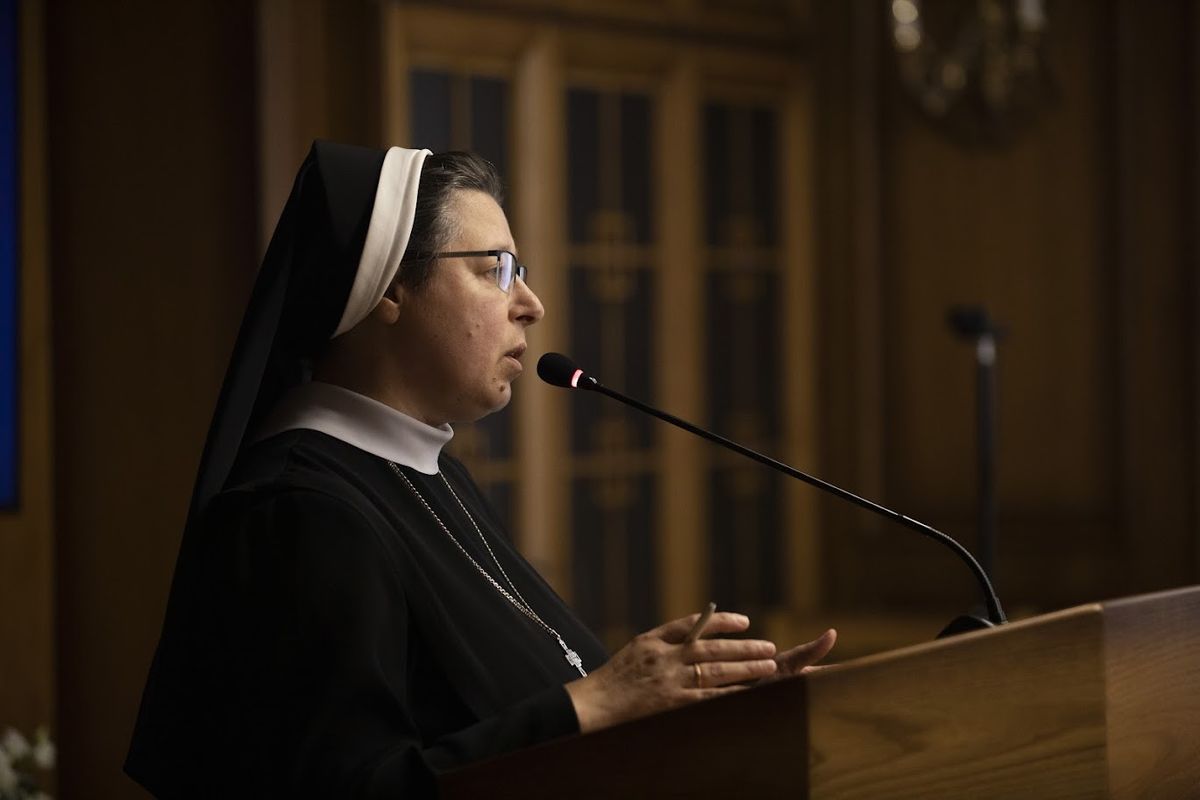
After the programme was approved, the Synod of Bishops of the UGCC in 2023 recommended that all clergy and consecrated persons complete it.
“In the period from September 2023 to July 2024, 24 blocks of the educational programme for the clergy ‘Healing the Wounds of War’ were held, of which 3 blocks were adapted for the wives of priests. In this way, 926 clergy and monastics, as well as 90 priests” wives from all eparchies of the UGCC, participated in the educational programme”, said Sr Sevastiana Karvatska, Head of the Commission for the Pastoral Health Care and coordinator of the programme.
In conclusion, it is worth noting that “charitable Ukraine is the ability of all of us to be God’s hands that lift down the lowered human hands, that heal wounds, that are able to overcome hatred with love, evil with the power of good”, His Beatitude Sviatoslav, Father and Head of the Ukrainian Greek Catholic Church, spoke about this during the Forum of Social Ministry of the Kyiv-Halych Metropolis of the UGCC “Interaction for Sustainability” on February 26, 2024.
Patriarchal Foundation “Mudra Sprava”
On the eve of the full-scale invasion of Ukraine by the Russian Federation, another charitable organization emerged — the Patriarchal Foundation “Mudra Sprava”. Initially, its activities were determined by the consequences of the war, so the projects it launched were aimed at immediate response: evacuation and resettlement of IDPs from the frontline regions, formation and distribution of food and hygiene kits, “Good Samaritan” first aid stations, and provision of medical facilities with everything they needed.
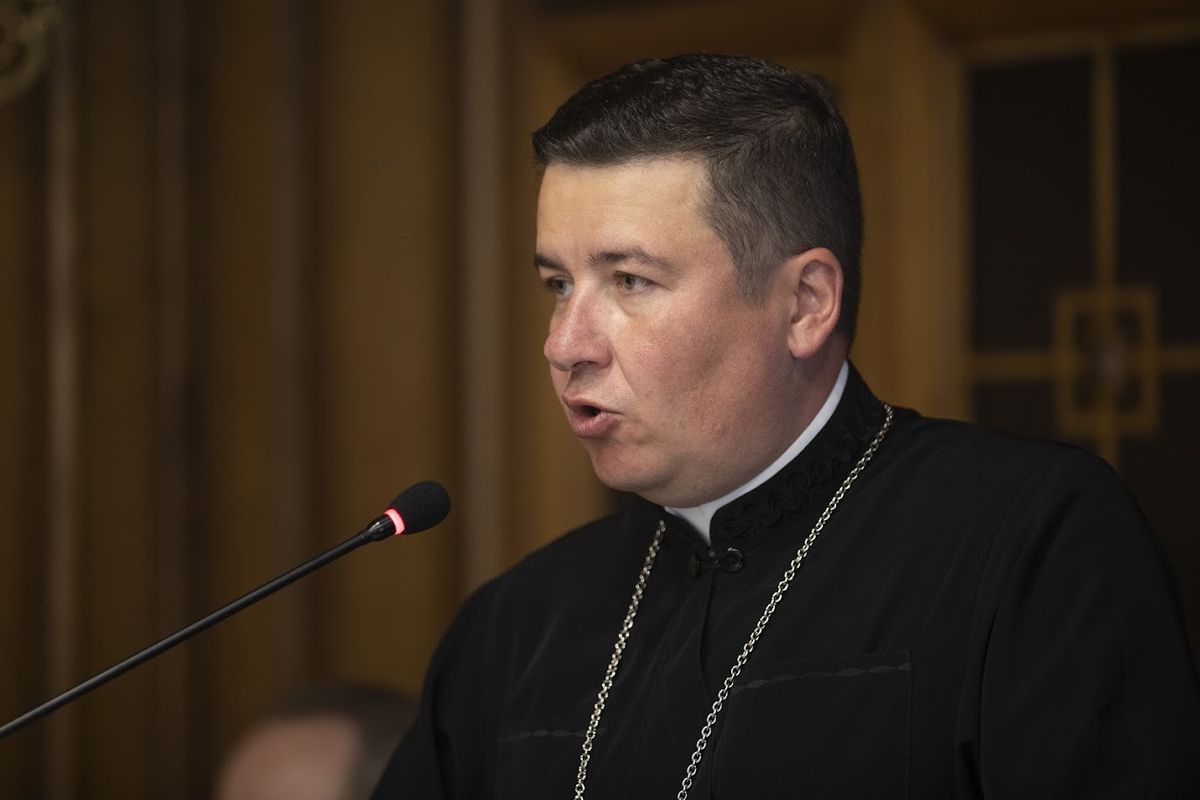
This led to a wave of more sustainable projects: spiritual and rehabilitation trips for internally displaced persons, the UGCC Logistics Center, a charity kitchen for preparing and distributing hot meals, a spiritual and rehabilitation camp for children from areas constantly under fire called “Free Children”, and modular houses for IDP families.
“Finally, today we continue our own growth and development of our activities and ministry. Today we are already talking about transformational, strategic projects of the level of the Righteous Metropolitan Andrey Sheptytsky. First of all, we are talking about educational projects for the comprehensive restoration of communities — ‘Healing Communities’ and ‘Action in Hope’. It is also the intensification of our UGCC Consulting Center for parish communities seeking to develop social service and entrepreneurship. We cannot ignore the establishment of the Wound Healing Centres and the launch of a network with individual parish branches of the Psychological Counselling Centre, which provides both individual and group services to improve the mental health of Ukrainians”, said Fr Lyubomyr Yavorskyy, director of the Patriarchal Foundation “Mudra Sprava”.
According to the Foundation’s official website, the main beneficiary of each project today is a person affected by the Russian war who needs human treatment, acceptance, communication, and the satisfaction of their basic needs.
Over the period of the Foundation’s existence and activities, 6,186 people have been evacuated and 254,670 km have been covered, and 1,135 people have been accommodated in the shelters of a network of nearly 100 shelters in the west of the country. Then, 33 spiritual and rehabilitation trips were organised for them, with 1,534 adults and children participating. 240 children from the frontline areas, which are constantly under fire, had the opportunity to rest and recover in 5 trips of the “Free Children” spiritual rehabilitation camp in summer and autumn 2023. The charity kitchen managed to prepare and feed 40,440 people with hot meals in seven parishes in the Kyiv region. In return, about 168,800 food packages were distributed across Ukraine to 337,600 people. As for the hygiene kits that were transported to the affected regions after the Kakhovka hydroelectric dam explosion, a total of 11,065 kits were distributed. To date, we have also installed 26 “Good Samaritan” resilience centres in the East, South and Centre of Ukraine. The network of Wound Healing Centres is being actively developed, with 4 modular premises already built and installed. The Logistics Center is currently equipped with 7 buses and 2 trucks. About 70 people received individual psychological help and support at 248 meetings, and almost 23 people took part in group meetings.
In 2024, from January to June, the Patriarchal House in Lviv also hosted 10 rides for war-affected communities as part of the “Healing Communities” educational and awareness project. And in the summer, four rehabilitation rides were held for military personnel who had been released from captivity or sustained serious injuries and their families. After that, three couples expressed their desire, prepared and received the Sacrament of Matrimony.
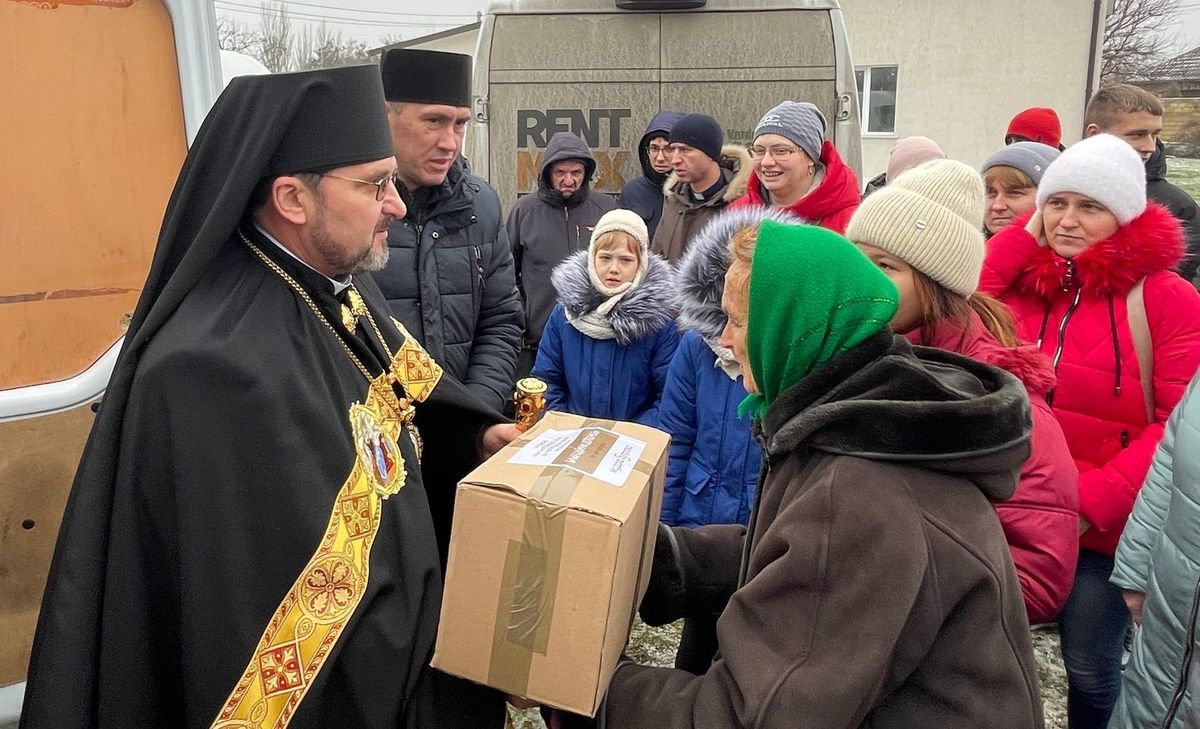
Since the beginning of the full-scale war, the Patriarchal Foundation “Mudra Sprava” has enlisted the support of 28 charitable organisations, eparchies and exarchates of the UGCC, Ukrainian organisations abroad to implement all its projects and raised financial support of over UAH 180 million.
“In this period of Russian war, we strive not only to support the needy and affected Ukrainians, but also to give them hope for a better future for each of us and our country. At all costs, we want to be by your side in service, so that together we can move towards our state-building change and resurrection. Despite all the obstacles and attempts of the enemy to destroy us, we want to be an effective instrument of God to heal the wounds of war of both our Ukrainian Greek Catholic Church and our state”, concluded Fr Lyubomyr Yavorskyy.
Photo: Information Department of the UGCCPress service of the Secretariat of the Synod of Bishops of the UGCC